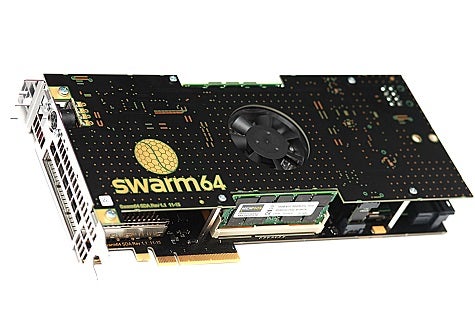Intel, working with Swarm64, a provider of a storage engine, announced today that it can significantly accelerate the performance of open source databases using field programmable gate arrays (FPGA).
Announced at a M|17 conference for users of open source MariaDB databases, Swarm64 CEO Karsten Rönner says the Swarm64 scalable data accelerator (SDA) is a storage engine for SQL databases that can be dropped in alongside existing storage engines employed in MySQL, MariaDB and PostgreSQL databases. Instead of replacing existing databases with, for example, a new database that runs in-memory, Rönner says FPGAs make it possible to process SQL requests to run in real time against large amounts of data without having to move data into a different database platform.
“We designed our storage engine to coexist with the existing storage engine,” says Rönner.
In the future, Rönner says, Swarm64 expects to be able to make use of an Oracle Data Cartridge to provide the same capability for Oracle databases.
Michael Strickland, architect and director for data center and storage business within the Intel Programmable Solutions Group, says Intel, following the acquisition of Altera, now has vested interest in making FPGAs a standard approach to accelerating application performance. In the initial form, that effort manifests itself in the form of an FPGA card. But Intel has already shown how it intends to package FPGAs and Intel Xeon processors together.
Moving data to a new database platform is not an activity most IT organizations relish. If a new storage engine coupled with FPGAs forestalls the need to swap out an existing database, chances are then high that large numbers of IT organizations would prefer to simply add additional hardware versus going to the pain and trouble of implementing a new database.



